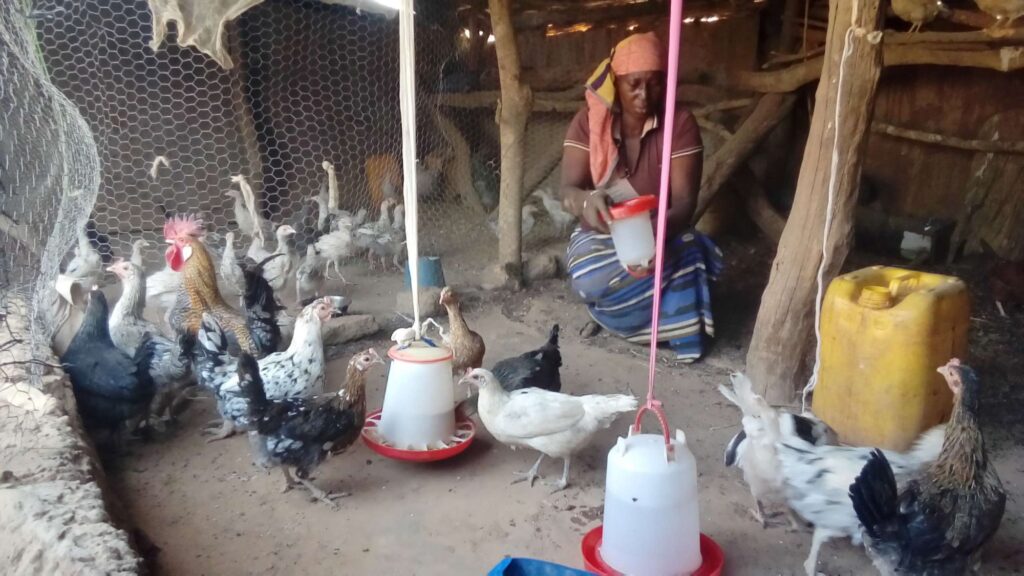How can access to sanitation change the lives of people in a West African village? SIANI’s expert group on One Health in Burkina Faso shares lessons from interviews in six villages where improved water, sanitation and hygiene (WaSH) brought better health and nutrition. “Since the WaSH programme, the environment has been cleaned up, there are no more mosquitoes and also fewer diseases,” one villager said.
Though most people in Burkina Faso have access to a rudimentary toilet, sanitation is rarely managed safely which causes illness and death. Rates of diarrhoea and malaria are high, with knock-on effects such as malnutrition.
In addition to the risks associated with human excreta, people in rural Burkina Faso are also often exposed to animal excreta since almost all rural families keep livestock. The animals, especially poultry, are kept within the compound where people live, and children play. Children under five are particularly exposed as they spend most time at home, close to the ground and often ingest soil contaminated by animal excreta. A serious concern is the spread of zoonotic pathogens from animals to humans which contributes to a range of diseases like salmonella, e.coli, and intestinal disorders that can cause stunting and reduced nutrient uptake.
Despite these risks, animals and their excreta have not been given much attention in WaSH interventions, where focus is usually on toilet access and hand washing. Burkina Faso has however been home to some innovative projects and studies on how to increase access to safely managed sanitation, while also taking zoonotic risks into account, and the SIANI expert group on One Health in Burkina Faso has set out to synthesise experiences so far. The aim is to make the lessons available to more people so that good ideas can spread, not least the concept of One Health, which considers the connection between human, animal and environmental health.
Interviews in six villages
Part of the review is an interview study in six villages: Kolbila, Lilbouré and Saria in northern Burkina Faso and the villages of Godé, Goumogo and Kamsé in the centre-west region of the country. The villages have been part of the poultry rearing programme SELEVER, run in 2015-2020 to improve rural livelihoods. SELEVER included a WaSH component where experts on water, sanitation and hygiene advised on best practices regarding, for example, the installation of latrines, basic hygiene and managing waste from both humans and animals.
To better understand the experience of villagers and the legacy of the project four years after implementation of the WaSH component, researchers set up two focus groups in each of the six villages – one with women and one with men – in which a total of 135 people took part.
In general, the participants felt that the programme had led to major improvements. After latrines were installed, people no longer defecate in the open, the villages have become cleaner, and more people have access to handwashing facilities with soap and water. The general sense was that there were fewer cases of disease. The One Health approach is also highly noticeable in the interview responses, as one villager explains:
”Before the arrival of the programme, we cohabited with the animals, the animals had access to the cooking areas and even dipped their mouths in the drinking water.”
After learning about how diseases can spread from animals to humans (so-called zoonotic diseases), villagers decided to build separate enclosures for their pigs and chickens.
Building toilets together
A participant from the village of Kolbila described what the start of the programme had been like for them. The village had been contacted by a team of WaSH experts who wanted to visit the village and who were warmly welcomed to a meeting with all 400 villagers attending. Together the WaSH experts and villagers drew up a large map of the village on the ground, showing where human and animal excreta could normally be found.
“We saw that this image was not pretty. There were feces and excreta everywhere in the community and the chickens went back and forth between the feces, excreta and food in the households. We found this very unsanitary.”
With guidance from the WaSH team, villagers discussed a range of actions to limit the risks, including the construction of toilets, cleaning of houses, better protection of water sources from animals and improved drainage. They experts also recommended that the animals should be kept in enclosed spaces at a distance from people’s homes. For the most part, the community appreciated the ideas for improvements but were a bit unsure of what could be realistically achieved.
“We were worried about the cost of building toilets, but they reassured us that with determination, we can build toilets at low cost or even free of charge in just three months.”
Toilets have indeed been constructed in all six villages and villagers describe how they have adopted a series of new habits that have made their villages much cleaner: ”We have become aware of the importance of sweeping the courtyards, cleaning the pots, washing the pumps and cleaning the schools.”
The focus group participants describe how the programme has fostered stronger bonds within their village. People are now pooling money and work together so that all households are be able to improve their sanitation:
”The arrival of the WaSH programme has strengthened our solidarity and fostered frameworks for meetings and discussions on hygiene and sanitation issues and many other subjects that are not related to WaSH. It has created friendship and mutual aid within the village, to the great happiness of the populations.”
Yet, costs and lack of materials remain the most serious constraints: “We need support in the form of materials such as picks, shovels, boots, gloves, wheelbarrows.”
